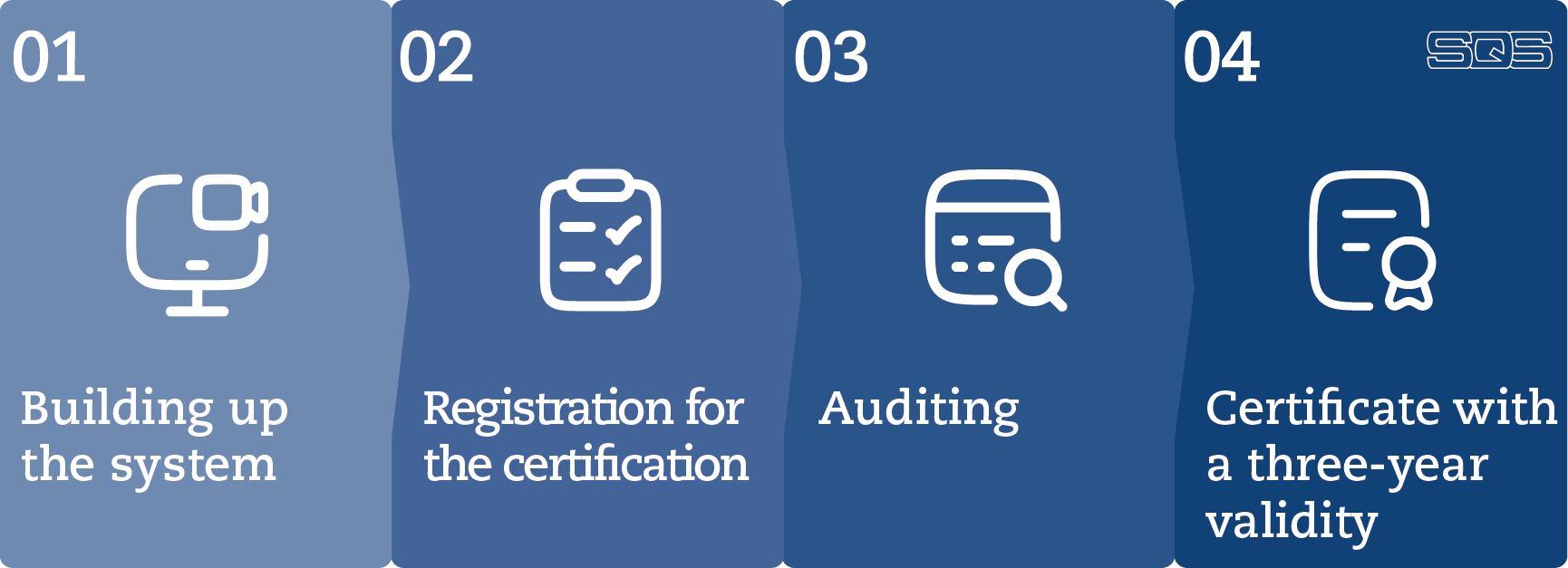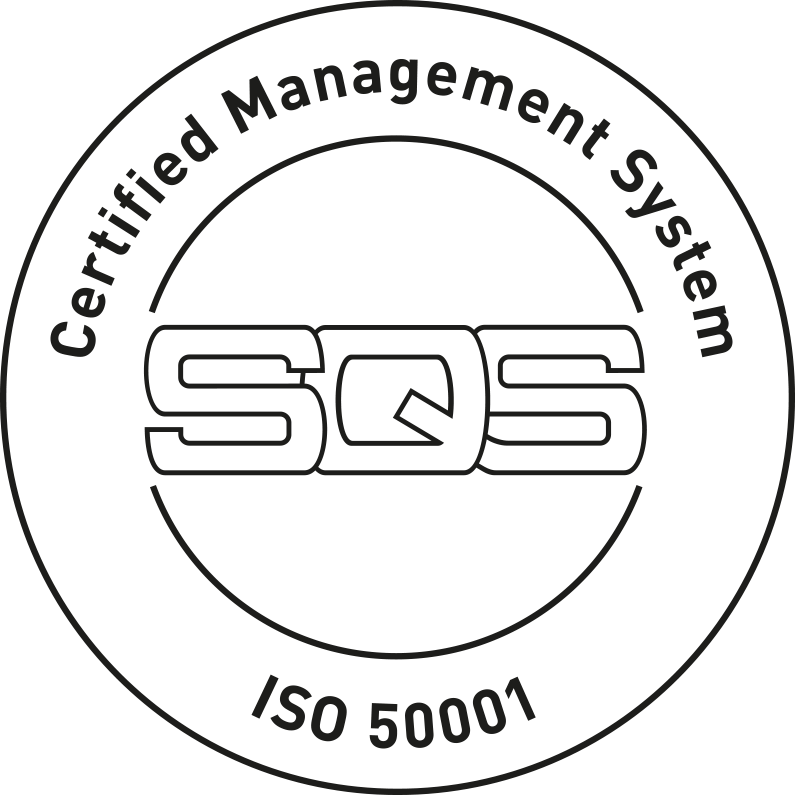ISO 50001:2018 – Certification of energy management Systems
In recent years, energy issues have gained increasing importance in society and in companies and are in the focus of climate discussions. ISO 50001:2018 is built-up according to the «high level structure» and defines at international level the requirements for systematic, data- and fact-based energy management. It requires continuous improvement of the energy management system and energy-related performance, including improvement of energy use, energy consumption and energy efficiency. Companies that demonstrably meet these requirements can increase their energy efficiency and reduce the environmental impact of energy use. They can demonstrate that their activities are based on their own initiative and commitment and respect legal requirements.
SQS has years of professional experience and extensive expertise in validation and certification processes relating to energy use and carbon footprint. This explains why the SQS certificate for energy management systems conforming to ISO 50001 is held in high regard and accepted all over the world.

Accreditation by the Swiss Accreditation Service (SAS)

Recognised internationally for access to markets worldwide

We have been certifying management systems since 1983

Around 7 000 customers trust our Services
Energy management according to ISO 50001:2018
ISO 50001:2018 provides the basis for the continuous improvement of energy management and energy-related performance, as well as the associated cost reduction and reduction of energy-related greenhouse gas emissions.
Target groups of ISO 50001
Companies and organisations of all sizes operating in all sectors.
Validity period of the certificate
3 years - there is an annual audit to ensure that standards are being maintained and a recertification audit after three years.
Recognition of the SQS certificate
The SQS certificate of conformity with ISO 50001 has international validity and is recognised worldwide through the IQNET membership.
Responsible for the product and there for you

Stefan Krebs
Do you have any questions about the standard or our service? Would you like to know more about the certification process and the costs? Or may we provide you with a concrete offer for the certification?
We are happy to help you. Our account management team and I, as the product manager, will be happy to forward your questions to our experienced auditors. We want to make it as easy as possible for you to access certified management systems.
Please let us know how we can support you. We look forward to hearing from you!
Kind regards
Stefan Krebs
Improvement of energy efficiency
Energy-related performance is at the centre of ISO 50001. A certified energy management system (EnMS) supports both the targeted optimisation of energy use and the continuous increse of energy efficiency. It therefore makes an important contribution to reducing energy costs and lowering CO₂ emissions.
Recognition and market access
The ISO 50001 certificates of SQS are recognised worldwide. This is due to the high reputation of ISO on the one hand and the «Swissness» of the certificate on the other. A certified energy management system strengthens your company’s credibility and creates trust with customers, authorities and other stakeholders.
Clear and optimised processes
ISO 50001 promotes a process-orientated approach to management. Organisations are encouraged to organise, monitor and continuously improve their energy-related processes. This leads to a holistic increase in energy efficiency, helps to save costs and ensures a more effective use of resources.
If you feel fit for the standard, you are welcome to use the form above to register for certification. Otherwise, your path to ISO 50001 certification could look like this:

#1 – Building up the system
Implement your management system in accordance with the requirements of the standard so that you are ready for your first external certification audit by SQS.
#2 – Registration for the certification
After registering for certification, you can benefit from a preliminary talk or pre-audit. The pre-audit identifies system-relevant gaps and enables efficient certification.
#3 – Auditing
We first review your system documentation, assess your readiness for certification and draw up a detailed audit plan together with you. Our auditors then visit your company to assess the relevant test objects and the maturity degree of the management system and compile a report.
#4 – Certificate with a three-year validity
If the report is positive, you receive the certificate in digital and printed form. You can communicate it internally and externally for three years. Annual audits ensure compliance with the standard and enable continuous improvements. A comprehensive recertification takes place after three years.
It depends on various factors such as company size, complexity, and degree of preparation. Well-structured documentation and preparation speed up the procedure significantly.
The certificate is valid for three years. A surveillance audit is carried out annually. After three years, the recertification takes place.
The costs vary depending on the size and complexity of the organisation. We would be happy to provide you with a customised offer.
No, our core competence is certification. However, if required, we will be happy to connect you with external experts or organise training courses so that you can optimally prepare for certification.
SQS, as certification body, independently verifies whether your management system meets the standard requirements and issues the certificate if the result is positive.
Each SQS certificate is given a unique registration number. This number can be used to verify the validity via our online directory. To the query.
If non-conformities are identified during an audit, the company is given an adjusted deadline to initiate corrective actions. Non-implementation can lead to a loss of the certificate.
ISO 14001 is focussed on environmental management, ISO 50001 on energy management. Both standards are based on the Harmonised Structure and can be easily integrated. A combined management system saves effort and creates added value.

